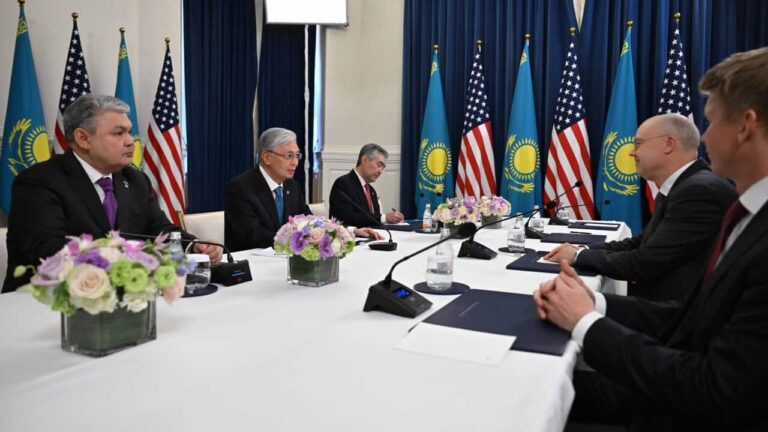By Eldor Akhadov, head of the production in Artel
Uzbekistan has rapidly changed. Four years ago the government made a bold move and opened the country to the world. Today Uzbekistan welcomes foreign investors and tourists by supporting international cooperation, partnership and trade. The entire globe is keeping an eye on the progress of Uzbekistan, which was called by The Economist a country of the year in 2019.
«Changes of this kind can’t be done overnight. To get this transformation done, a massive reform of the country’s economy and public sphere is needed. For private businesses like our company, this situation brings not only new opportunities but also a great chance to be a part of these changes.»
Liberalization of the Market
Since 2017, when the government declared reforms, it has been implementing a policy aimed at liberalization of the domestic market and economic integration with the world. Liberalization of the foreign currency market was the very first step by the government that has allowed the country to attract investments and boost international trade.
Once the government got these new tools and capabilities, it has switched to new methods of economic modernization. For example, some state agencies for the first time issued Eurobonds. In the next step different state assets including several banks went private. It is expected that all of this will attract foreign investments and make local companies more effective.
The emerging market of Uzbekistan has sparked huge interest from international organizations. Some foreign companies have already opened their representative offices in the country while others are investigating possibilities in Uzbekistan. In other words, the international capital sees the potential of our country and believes this is not a temporary trend.
Basis through Internationalization
All those reforms have influenced the private sector. This sector in Uzbekistan will grow in the future as the country’s economy gradually evolves. Moreover, the private sector is going to be a key driver of this growth thanks to closer ties between Uzbekistan and its international partners, free flow of foreign currency and new incentives for exports. All these factors will allow Uzbek companies to beef up the turnover of commodities and strengthen their position on international markets.
Tax reforms and the new Tax Code of 2019 have helped the private sector to develop and operate in a better way. In the past, the system of taxation put many restrictions on private businesses. For example, they couldn’t act as active actors on some platforms and their capabilities to take part in the financial operations were limited. Today, companies in Uzbekistan can expand and grow with no need to create new entities. Big companies, for example, can consolidate their assets under an umbrella brand. Even though this process takes time, it is very important for companies as it allows them to raise their professional level, expand their scope of operations and improve their management system.
Artel is a pioneer of this transformation; the company has complemented the consolidation of its assets this year. Now, all parts of the holding are subsidiaries of Artel Electronics. Once we did it, we were able to estimate how big the company is and then determine our strategy for future growth. Under IFRS rules Deloitte has reviewed our books over the last three years. Moreover, we have gotten a credit rating from Fitch this year. It gave us the international recognition and assessment of our creditability, so we can cooperate with our international partners more easily.
At the same time, we’ve revised our system of corporate governance. Today we are introducing a new structure, policy and processes that meet best practices and put our business in line with high international standards of transparency and accountability. Also, we have established a board of supervisors with an independent director to let them supervise our activities.
Artel is just one example of what Uzbek businesses are doing to take advantage of new opportunities. I am sure that many other companies will follow these examples. Local companies want to cooperate with international partners; this means they have to meet strong requirements for corporate governance and operational activity. In the end, this will have a positive impact on the business environment in the country.
Human Resources
The international business community is keeping an eye on economic and tax reforms in Uzbekistan. However, the very basis of the country’s transformation is social progress. Neither economic nor financial changes can move Uzbekistan forward until the society is developed in the same way.
The government has a clear vision of it. That’s why it has underpinned its new strategy with social projects. The country wants to enlarge human resources, stop the brain drain which has lasted for years and prepare new talents to make this strategy come true. Moreover, the president of the country prioritized the improvement of the health system even before the COVID-19 pandemic had begun.
Interestingly, that equality and diversity have been a key priority for Uzbekistan for a long time. In addition to the notion of equality, written in the Uzbek Constitution, the country adopted a new law on gender equality in September 2019. All of this proves that the country has taken a hard line against gender discrimination and is aimed at providing men and women with equal rights. This statement is embodied in the country’s strategy to reach gender equality by 2030. The document covers a wide range of issues including equal and sound education for both men and women, higher education for girls from rural areas and prevention of both domestic violence and human trafficking. Because these issues have been discussed at the top level, there is a great chance the country will make big progress in gender equality and so on.
Business and Society
The private sector plays an important role in the evolution of social settings. Big companies are more than just economic actors; they promote human values including diversity. Equal rights, respect for talents and opportunities for development – this is a minimum of what people need to feel comfortable at their workplace because this is something that affects them even outside the office. There are more than 2,000 women in Artel and this means that our position toward gender equality has a direct impact on loads of people.
The promotion of gender equality isn’t an easy task for any business. However, when women take part in business processes, they widen our staff reserve and make the company stronger. Moreover, gender diversity helps us be more creative and effective; it makes us able to respond to any business challenge today and in the future. We can and we must use our power and influence to promote these values through different social projects and charities.
Artel is proud of its attention to women’s rights protection. The company supports a women’s development program that is aimed at the implementation of several educational projects for women. Also, we have a women’s committee that looks for, supports and facilitates promotion for young female employees. Our legal department runs a weekly legal clinic to promote legal literacy among Artel’s workers. In the future, any woman will be able to get advice from the clinic. We are going to share our views on gender equality and domestic violence in the company’s promotional brochure. We support projects aimed at expanding the rights and capabilities of women; the company’s advertising and marketing departments are focused on the topic as well. This is just the beginning; we are looking forward to starting these projects in the future.
The transformation of the entire country is occurring not in a separate sector; it requires cooperation from many actors. While reviewing the impact of reforms on the economy and society, we can see that this process has many facets. We are proud that we can be part of these changes and we know that anyone can take advantage of the opportunities that fast-developing Uzbekistan provides for everyone.












